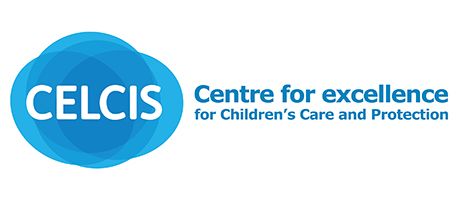Creative Notes
The importance of music and creativity in supporting the wellbeing and development of care experienced children and young people

Music Matters
Care experienced children and young people very often don't have the space or opportunities to express their creativity. This can affect their immediate wellbeing, their long term mental health and their future life chances. It matters because access to creative outlets and resources to explore creative expression should never be seen as a ‘nice to have’ or just for those who can afford access. The Independent Care Review recognised the importance of supporting children and young people’s creativity, and with Scotland working towards the incorporation of the UNCRC into Scots Law, children’s right to relax, play and take part in a wide range of cultural and artistic activities will underpin a rights-based approach to this.
Scotland's education system can struggle to maintain regular music lessons in schools, and private music tuition can be expensive. But the value of music for young people is beyond doubt. Research carried out by CELCIS for Creative Scotland involving a number of partners including Who Cares? Scotland, Music Plus, Argyll and Bute Council, Care Visions, Glasgow City Council and Seamab, looked at the opportunities available for children and young people in residential care to participate in music activities.
Music activities should be part of day-to-day life, without having any other agenda; this includes listening to music in the house, car and life generally, as well as other more structured music activities.
This found that music promotes emotional wellbeing, is linked to personal identity and promotes a sense of inclusion and belonging. It also helps build relationships amongst young people, and between young people and their carers. There are many examples of how young people and their carers appreciate the value of music as fun, moving and engaging, and acknowledge its importance in supporting emotional development; how music at all ages can help children and young people talk about how they feel; and details some ideas put in place to support music tuition. But it also recognised that there are significant barriers to accessing music and music tuition for care experienced children and young people. Some of these are cultural or practical, whilst others stem from a systemic lack of continuity that can be a feature of the lives of many of the children and young people who are in care. But the benefits of learning, playing, or just experiencing music are unquestionable. One young person told the researchers:
You can get lost in music. If you’re happy, sad, angry, anything – you can just express your emotions.
A collaborative 'Musicares' project run by the charities Sound Lab and Music Plus is the first national music project for care experienced young people in Scotland, providing free music tuition, workshops, mentoring and advice for care experienced young people all across the country. This programme offers any type of music or creative tuition, from DJ and sound production, to learning to play the guitar, drums, keyboard, singing/songwriting, music theory, art and anything else that young people might want to learn.
why we need to act to support creativity in care
Paul Sullivan, and the team of volunteers he works alongside at Sound Lab, are driven by the ethos that 'music matters'.
They believe that, irrespective of age, gender, race, ethnicity or economic background, everyone should be able to access the resources and support they need to fulfil their creative potential. The small charity he chairs is made up of a dedicated team of volunteers and expert tutors who, together, bring free music and creativity to hundreds of people every year. Together with another music charity called Music Plus, they have created a programme called Musicares that supports hundreds of care experienced young people each year with free access to music and creativity. The workshops are free and are designed to be flexible and accessible - able to follow the young person if they move placement, for example.
The programme aims to benefit care experienced young people in particular. The workshops are free and are designed to be flexible and accessible - able to follow the young person if they move placement, for example. It provides the loan of instruments and other technical equipment where possible and the tuition can be one-to-one or group work. It can be difficult for young people to develop friendships with adults, especially if all the adults they know are in positions of authority. For Sound Lab, it is important that the young person decides how they want to participate and the informal and supportive nature of the workshops means that the relationships they build with the tutors are often as important as the music itself.
Creativity in Lockdown
The COVID-19 pandemic put an abrupt end to the many face-to-face workshops Sound Lab was hosting under Musicares each week. However, being aware of the importance of maintaining those supportive relationships, the volunteers have worked tirelessly to create a programme of digital delivery so that young people can continue to take part. The online workshops have boosted the morale of the young people who participate - giving them something to focus on and helping tothem feel less cut off from the outside world. Music and creativity can at times be dismissed as a ‘nice to have’ but COVID-19 has really shown Sound Lab the importance of their work – not just in the creative tuition and technical education, but, perhaps more importantly, in the relationships that many of the young people have built up with their tutors and volunteers. In some cases, the tutor has been the only other supportive relationship these young people have seen each week.
As well as their ongoing digital tuition, weekly tutorials over social media from industry professionals within Scotland’s vibrant music scene have been released. These pre-recorded tutorials come from their bank of specialist tutors, including DJ track mixing, music production on a professional mixing desk and insights into the song writing process from professional musicians.
Enjoying art made by others, producing a piece of music, learning an instrument or writing a song can provide comfort to people in such uncertain times, and this shouldn’t be a privilege given only to those who can easily access it. For care experienced young people, having a trusted adult who is there to support them can make an unbelievable difference to their wellbeing, and this has been so important during the last few months.
Sound Lab showcase the work of their students in a regular online radio programme. Listen to it here.
It's amazing how much it has brought out his confidence - how much he feels better about himself...
Colin Hendry can’t speak highly enough of the support his son, Ciaran has received.
“Sound Lab has been a total turning point for Ciaran, he always dreamed of performing as a DJ in front of a crowd of people. But where do you start? Breaking onto the DJ circuit is extremely difficult and until Sound Lab got involved, this seemed like a pipe dream."
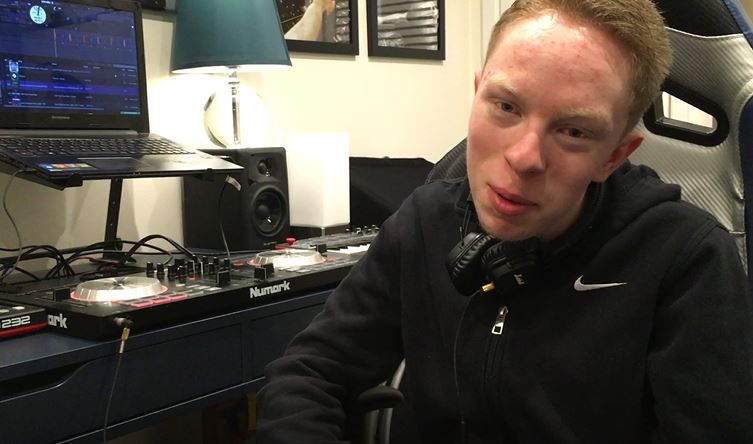
“Ciaran was asked to DJ at The Mallard BBQ in collaboration with Sound Lab and DJ Steg was on hand to assist and gave DJ Ciaran full control over the decks. He turned out a stomping performance. This was Ciaran's first gig and he loved it.The positivity and confidence this gave to him was phenomenal.
“Shortly afterwards Ciaran was asked to perform at the "Time To Shine" event at SWG3. If you could measure a smile..... Again he turned out a stellar performance and received so much praise and high fives when he left the stage. He had this fantastic opportunity and totally embraced it, he rose to the challenge and loved every minute.”
"Ciaran has now enrolled in a sound production course at college and advanced DJing lessons. Because of Sound Lab Ciaran is now able to truly pursue his passion and more."
Now Ciaran has been learnings drums and starting to produce his own music. He has a guest slot with Sound Lab on the community radio station Clyde Built Radio and is also studying music at college.
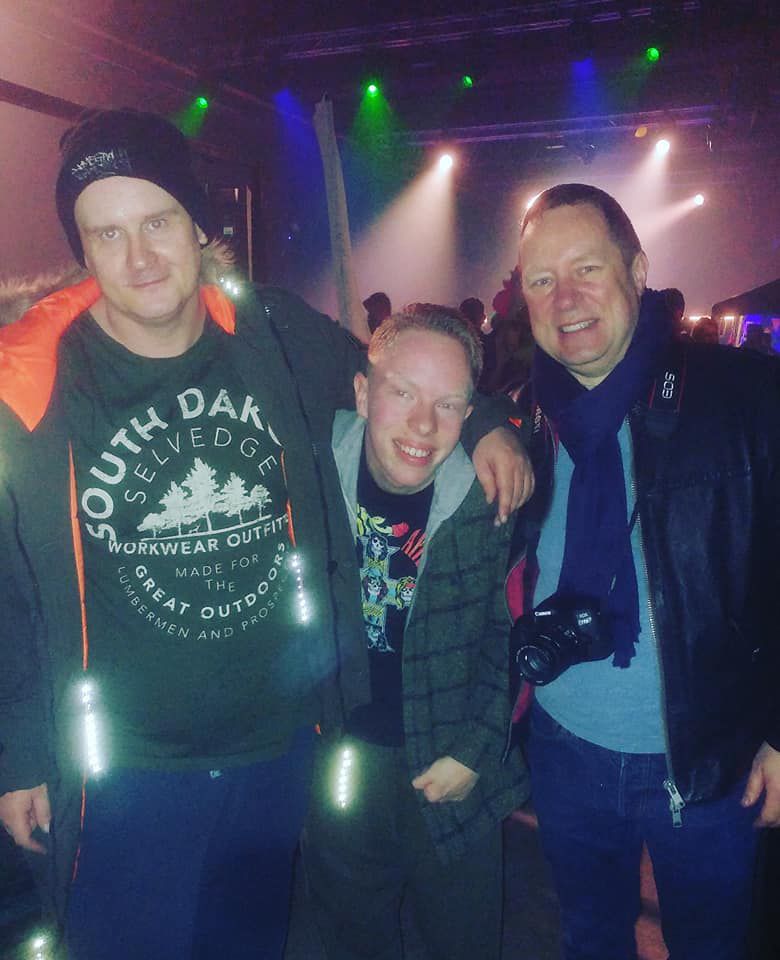
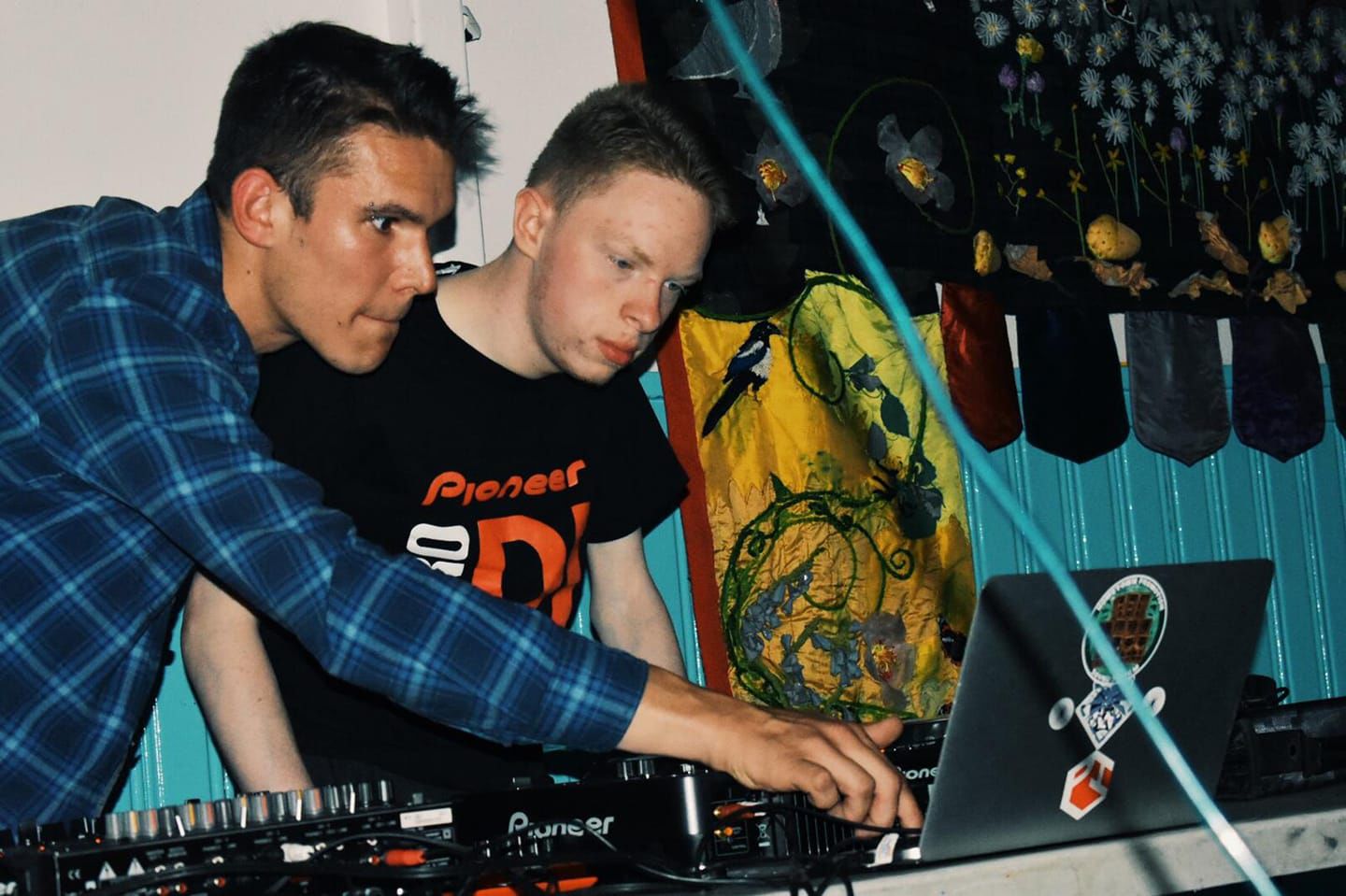
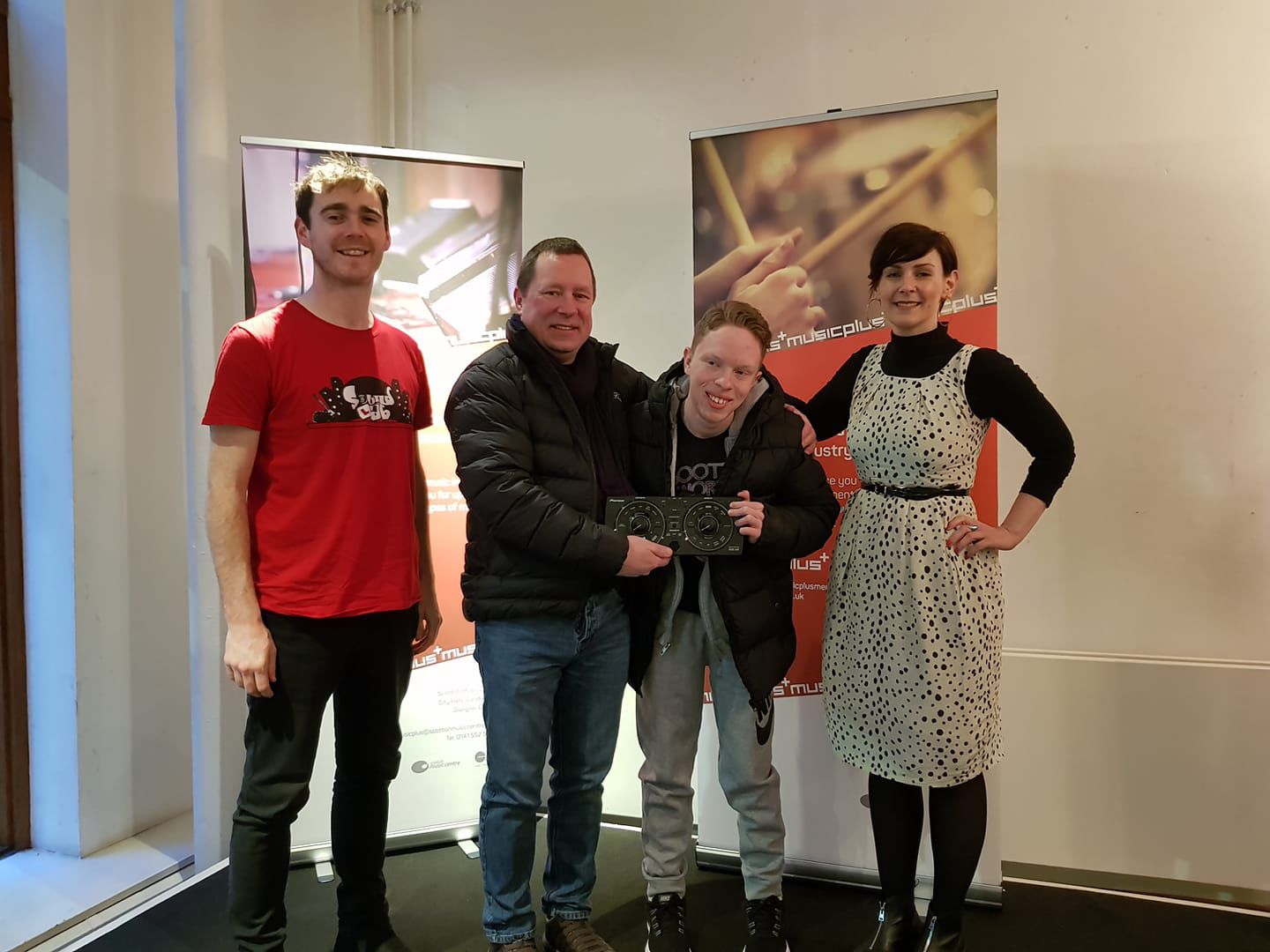
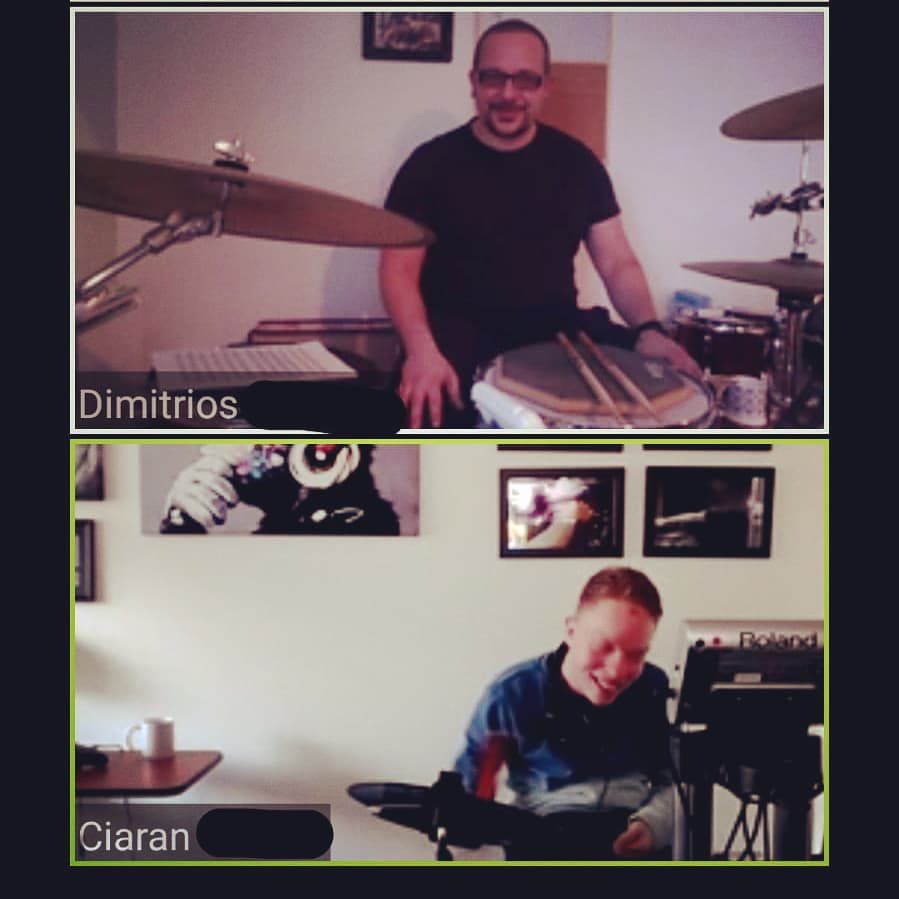
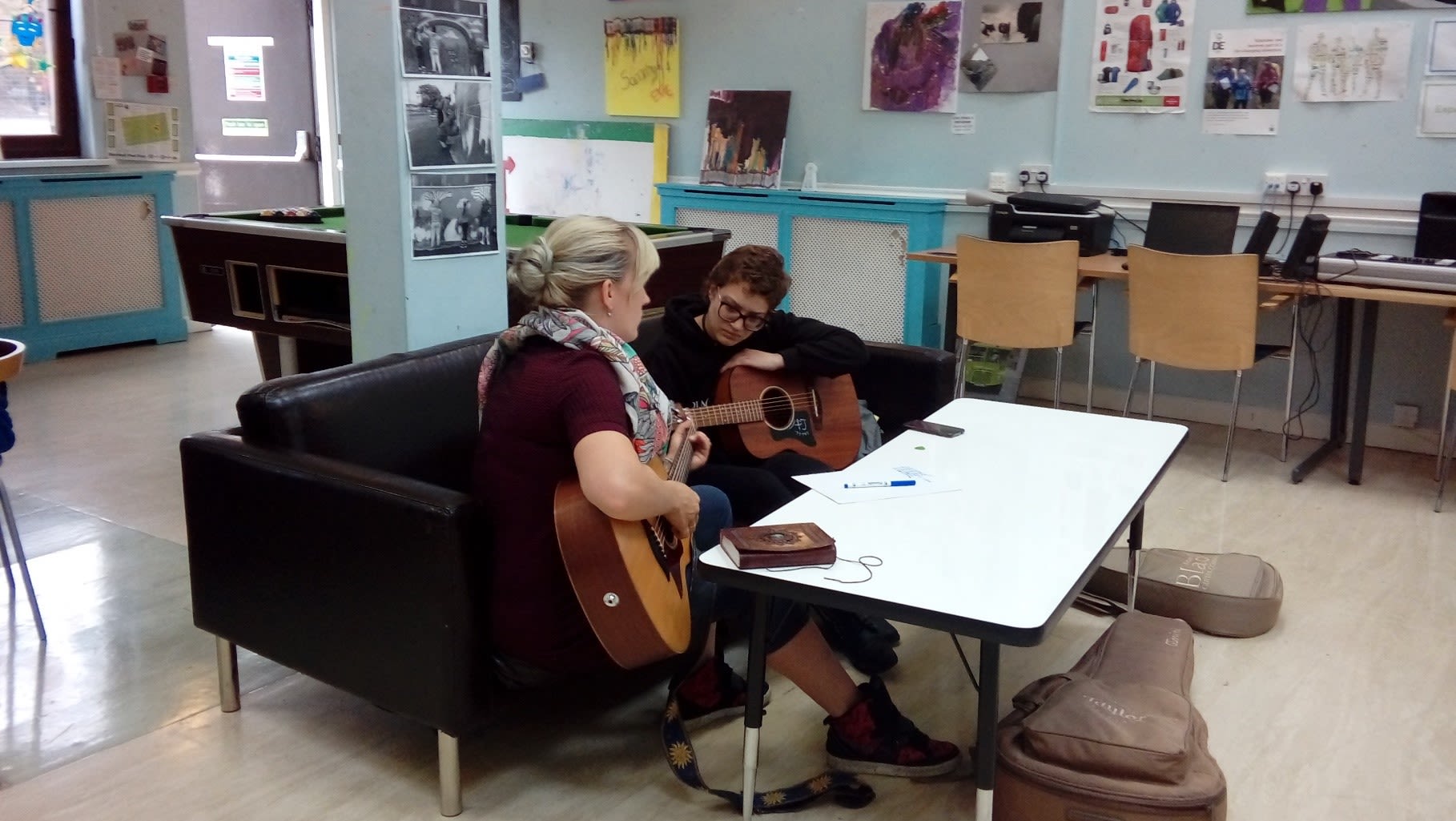
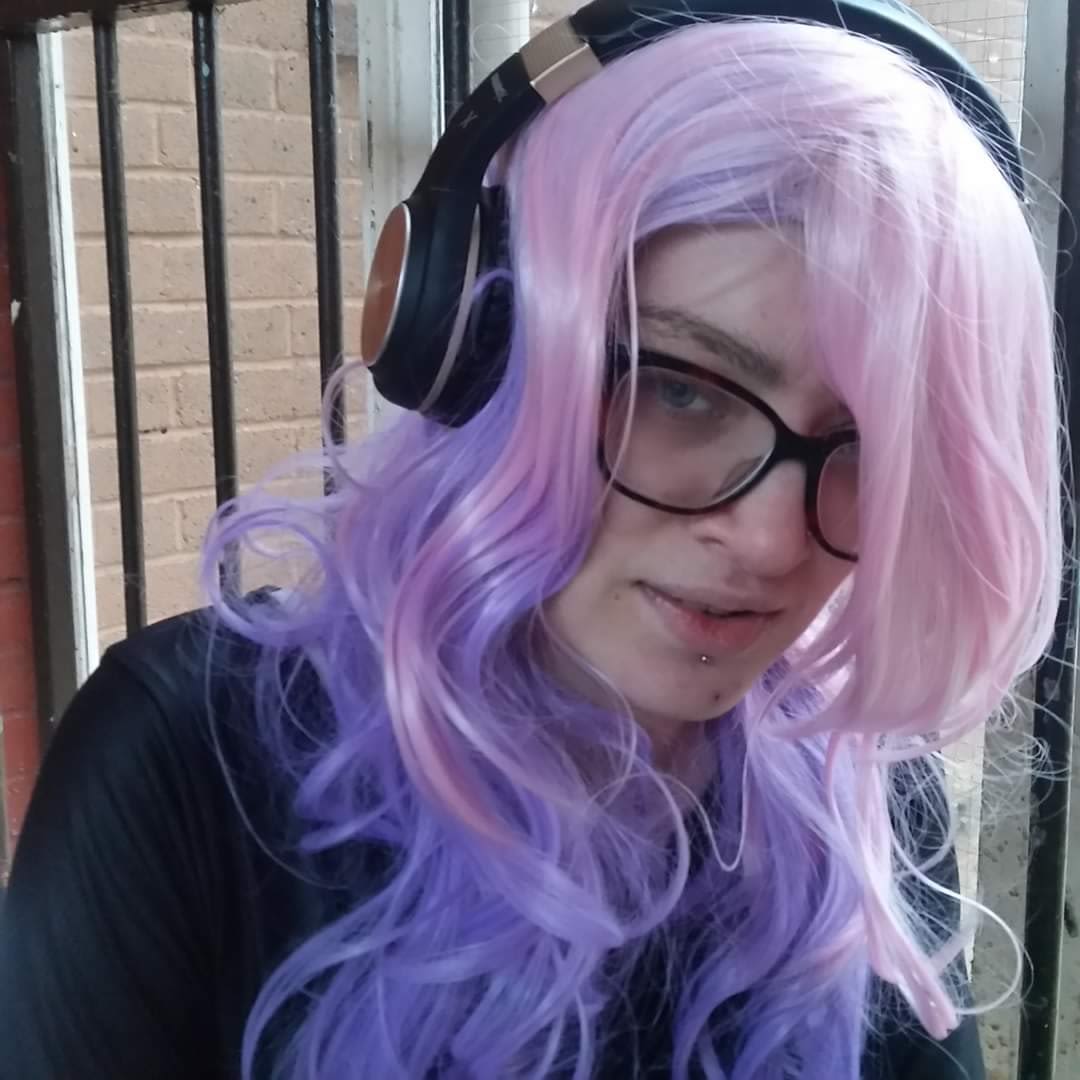
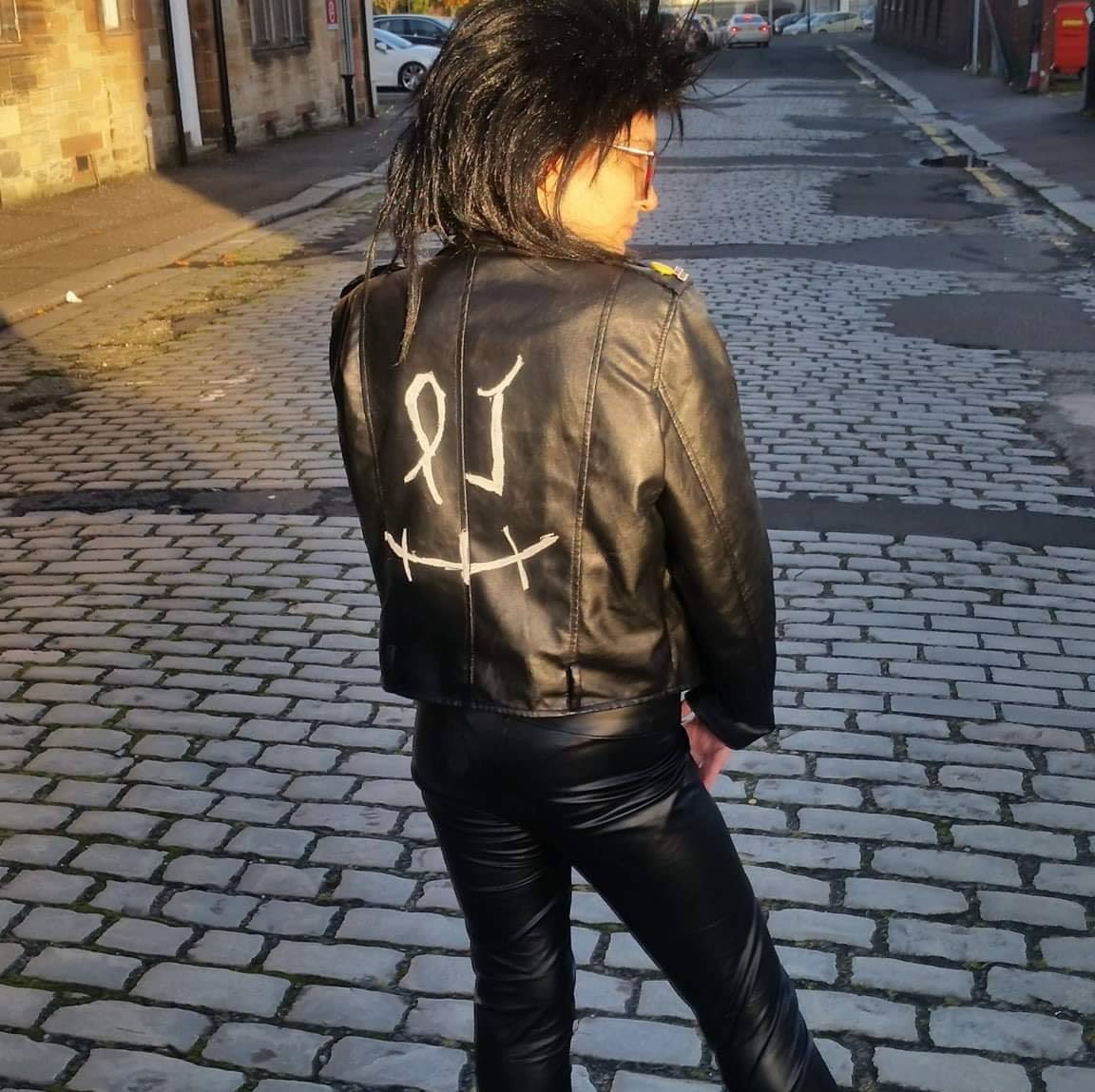
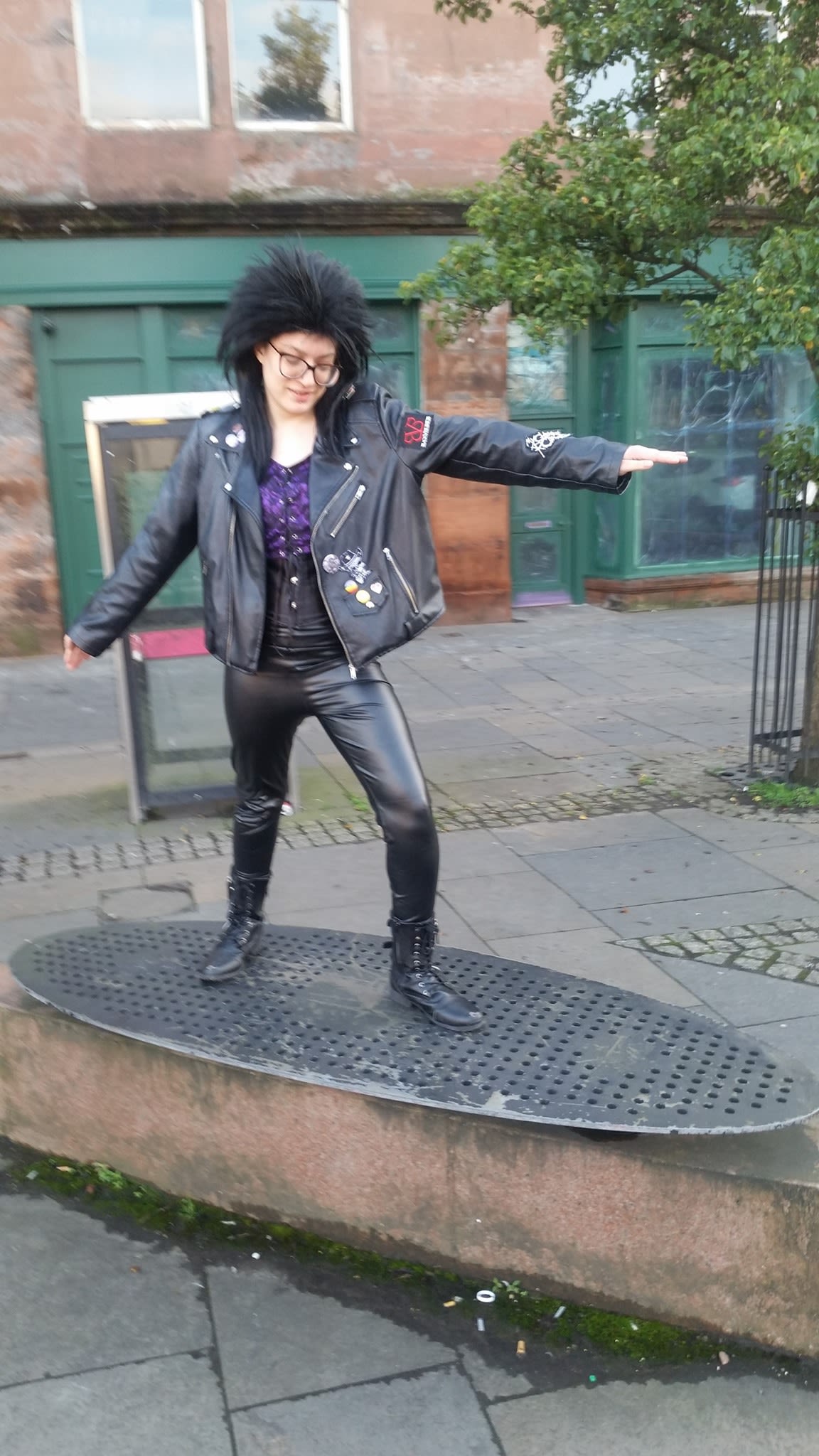
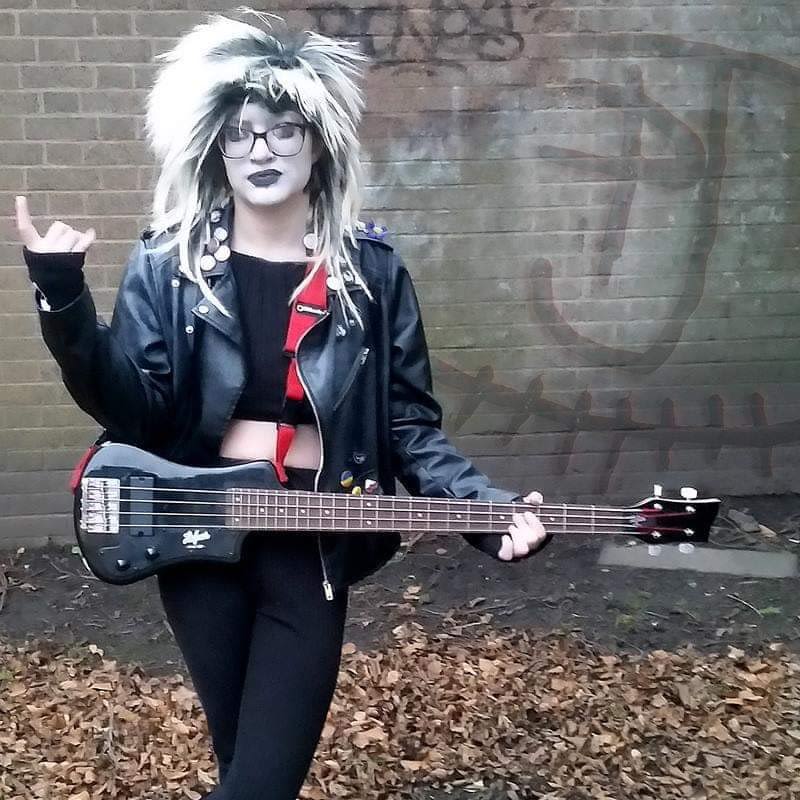
Over the years I have struggled in different ways, but this project has really helped
PJ has really enjoyed working with the tutors at Sound Lab. She has been involved with the Who Cares? Scotland participation group “The Chill Out” where she has had access to free music tuition provided by Sound Lab as part of the musicares programme.
"Music is my life. Without my poetry, without music, without a creative outlet I don’t know where I would be. Being able to develop this talent that I didn’t always know I had has built up my confidence. It helps me in other areas of my life."
Over the past year, PJ has started to write her own music which is a combination of spoken word and rock style hooks. She has also started to perform gigs in various local venues. Music has become a very important part of her life and forms a large part of PJ’s identity. Through performing she has increased her confidence and expanded her social networks.
For PJ there have been numerous highlights during the course. Getting to work on her EP - working with Steg G and songwriter Becci Wallace and learning their trade - and meeting and helping other young people to fulfil their ambitions to sing and make music. PJ doesn’t want the course to stop “Make it last longer! I’d like to learn drumming, beat boxing, left-handed guitar and production.”
PJ released her EP SOYN in November 2019
PJ is now learning bass and is working towards her college qualifications in music.
These young people are really amazing
The free music workshops are designed to give young people the chance to learn how to play an instrument free of charge. There are pianos, keyboards, DJ equipment and microphones on offer in the workshop, where anyone is welcome to drop in and have a jam. But it is not just the young people who benefit from this. The music teachers, who are on hand to offer tuition and advice have been inspired by the enthusiasm and determination of the young people they have met.
We are here to help young people get involved and learn about music – all styles, all genres, all kinds of instruments.
Music is for everyone. It’s important for young people to find their place in music. It’s something I really want to support. Seeing the young musicians blossom into great musicians and also educators in their own right has been phenomenal.
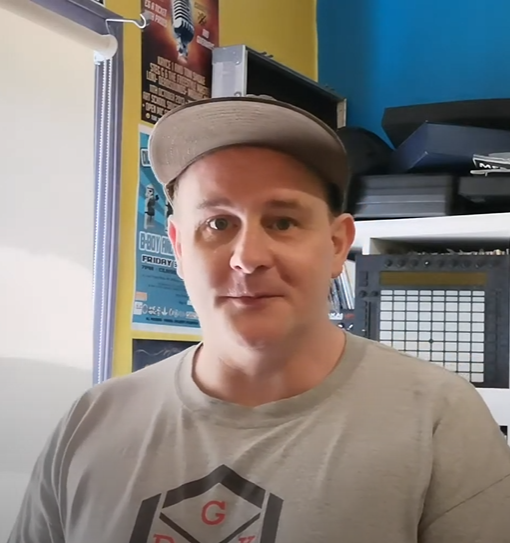
Steg G
Steg G
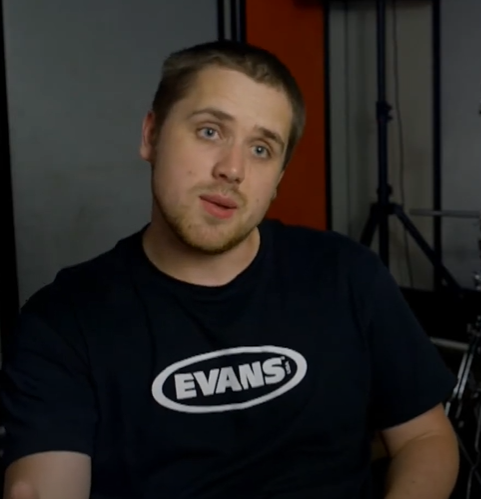
Mark McSporran
Mark McSporran
I enjoy the diversity of the students you get to teach, the real sense of community when you are playing with these students and also seeing how they develop. Even though some of these projects only last 5-8 weeks, you can still see how much they get out of them.
It’s the same for us as well – we really respond well to that and enjoy it.
The young people have been really lovely, kind and open and creative, I don’t know if that is related to them being care experienced or not, but I have really enjoyed working with them.
Each time you don’t know what to expect. Every time is different it’s so creative.
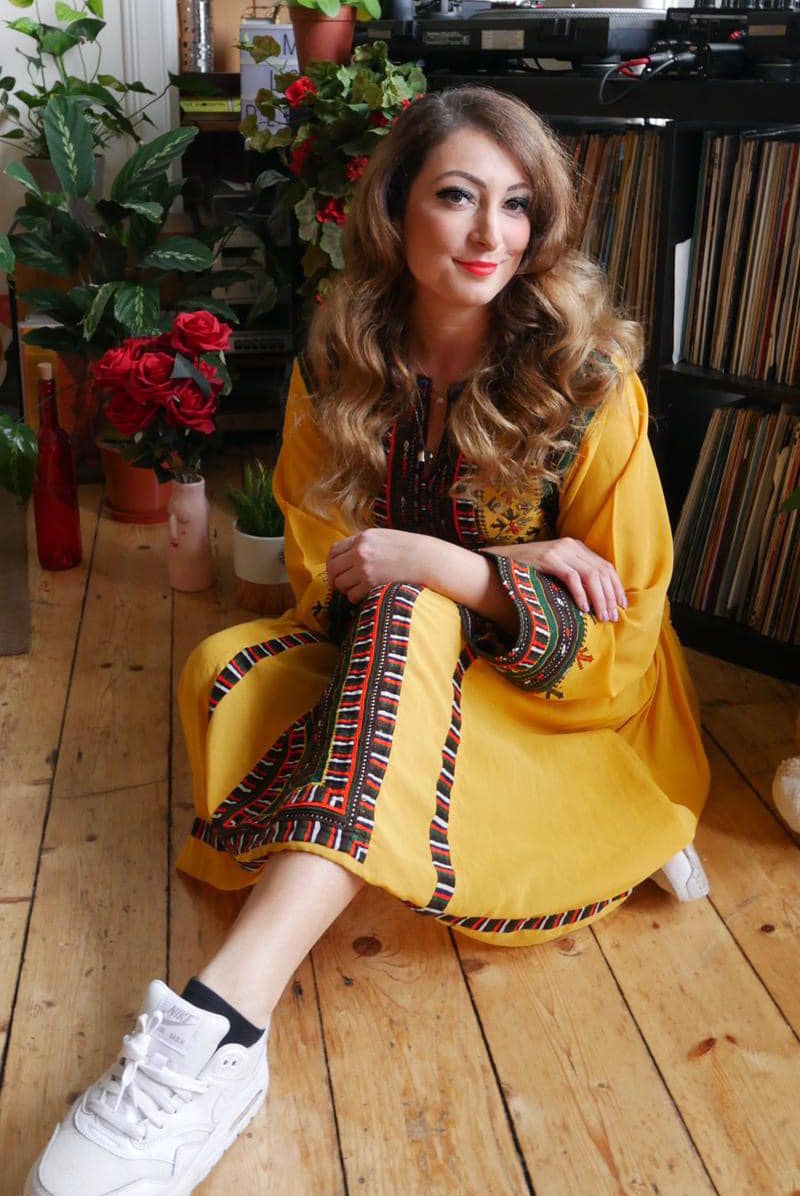
Rebecca Vasmant
Rebecca Vasmant
young people taking the lead
Christine was told about Sound Lab by a social worker and through her involvement with a volunteer group New Young Peers Scotland. She saw the great opportunity and was eager to be involved. After completing a course on DJing with Rebecca Vasmant, she is now learning to play the guitar with John Bonnar, alongside a number of other young people from a refugee background.
“It is really good and something I look forward to. I had never played guitar but I really want to carry on with guitar lessons, because it takes my mind off things. Learning in the pandemic has been OK because the teacher is very patient and very understanding.
"Lockdown has been hard for people who are on their own, so this is something that has given us people to speak to and someone to interact with every week and enjoy music with. It keeps your mind active. The lessons were really full on and that made me practice afterwards to make sure that I remembered everything.”
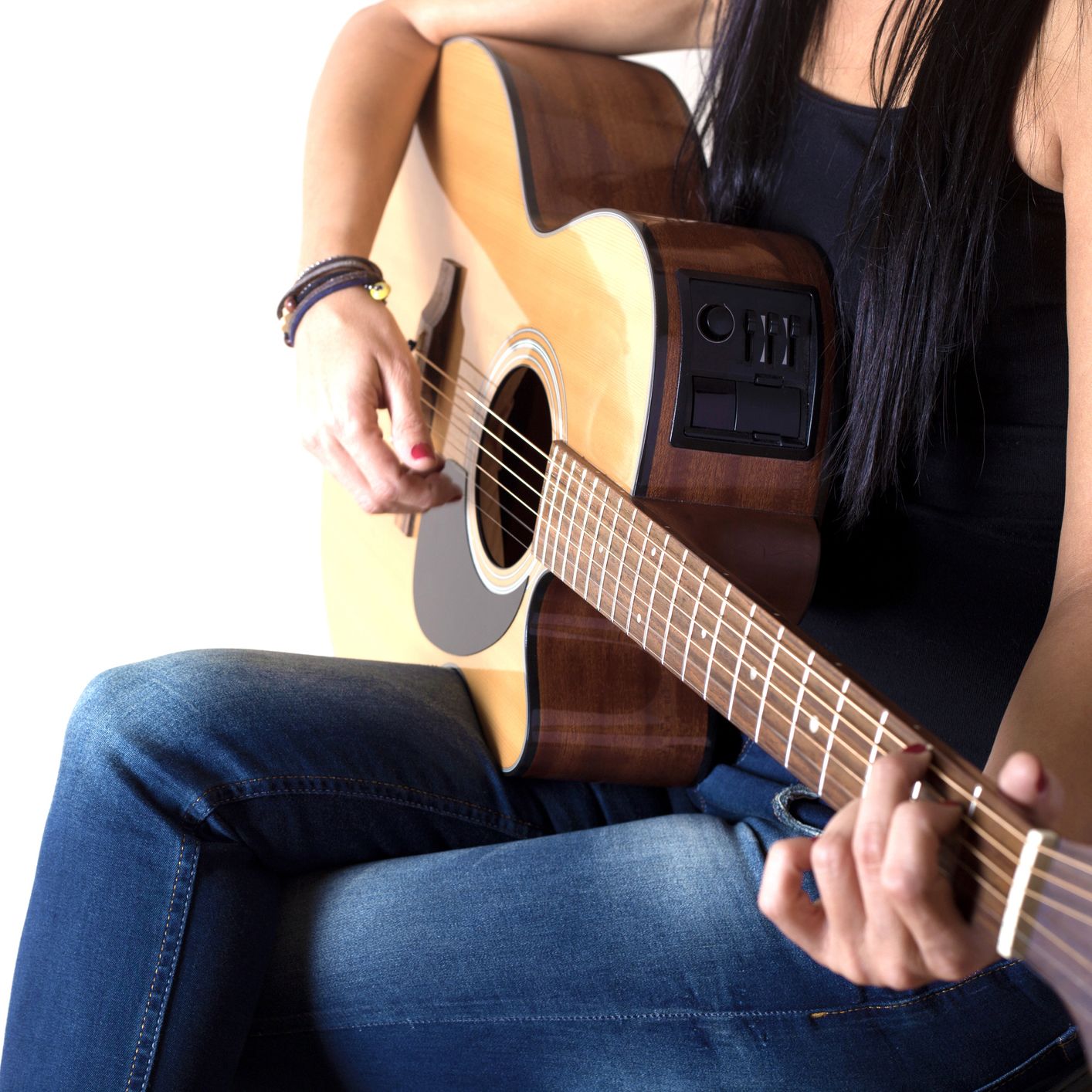

Gary started in the Musicares sessions in Ferguslie Park in 2018 with Who Cares? Scotland, where he was involved in DJ workshops with Steg G. He then worked on production with tutor Jordan Carey, helping write tracks together at a music studio in Paisley. He has really enjoyed the experience, “Jordan’s teaching style is fun and he’s very good at teaching how to do it. Music means a lot to me because when you’re stressed you can play music and it makes you better. I would definitely tell other young people to get involved. What next? I’m not sure...keep practising what I’ve learned and in the future I would like to do some MCing too.”
Jordan Carey is full of praise, “Gary has picked up production really quickly and has fun coming up with his own stuff. The tracks he has made are brilliant. He has a keen interest in local hip-hop/rap and I’m looking forward to working with him again soon!”
Gary progressed so well that he played some of these finished tracks at a celebration event in the Scottish Music Centre in 2019.
Some of Gary's tracks are here.
enriching young people’s lives through arts and creativity
Many charities and public bodies working with young people and the arts in Scotland receive funds from Creative Scotland (CS). It enables people and organisations to work in the arts and creative sectors in Scotland. It has a legal role of being a corporate parent, requiring it to promote the interests of care experienced young people and provide them with opportunities, and also to collaborate with other corporate parents to improve the way they work with care experienced young people, as Creative Scotland explains in their own words:
"Creative Scotland (CS) is the public body that supports the arts, screen and creative industries across all of Scotland on behalf of everyone who lives, works or visits here. We enable people and organisations to work in and experience the arts and creative sectors in Scotland. We do this by helping others to create culture through developing great ideas and bringing them to life.
"We became a corporate parent through the Children and Young People (Scotland) Act 2014, which means that we have a duty to understand the issues that care experienced young people face; promote the interests of care experienced young people and provide them with opportunities; and to collaborate with other corporate parents to improve the way you work with care experienced young people. Creative Scotland is not always the most obvious corporate parent. We’re not one that usually shows up formally in children and young people’s creative journeys, whether care experienced or not. Usually it is through the projects and organisations that we fund that children and young people come into contact with our work.
"One of the main strategies that underpins our corporate parenting work is Time to Shine, Scotland’s National Youth Arts Strategy, the core purpose of which is to enrich young people’s lives through arts and creativity. Creative experiences play an important role in children and young people’s lives. They provide opportunities to engage in creative exploration and play; to escape from everyday life; to experiment with social identities, discover new selves and imagined future selves; build self-esteem; and build relationships with other children, young people and adults. They also provide children and young people with opportunities to lead in decision making processes and to feel in control of the creative process and future trajectories.
"However, we also know that care experienced young people often face multiple and systemic barriers to accessing creative opportunities. Part of our role as a corporate parent is to understand what these barriers might be and make sure that there is the right kind of support in place that helps care experienced children and young people to realise their creative ambitions, whatever they might be. We do this through our funding, by monitoring where projects and organisations are aiming to work with care experienced young people, identifying care experienced children and young people as a priority group for some of our funding streams and supporting organisations and practitioners to share learning.
"One of the funding programmes that has had care experienced children and young people identified as a priority group is the Scottish Government’s Youth Music Initiative (YMI), which was established in 2003 and is administered by Creative Scotland. The programme aims to create access to high quality music making opportunities for young people, offer young people the chance to achieve their potential in or through music making, and support the development of the youth music sector for the benefit of young people. Musicares is a really important example of that programme. By having identified care experienced children and young people as a priority group for YMI, we’ve been able to start to build a better picture of what provision there is for care experienced young people, the types of targeted work that is being undertaken within the sector to ensure care experienced young people are supported to access music provision, and we’ve been able to see the breadth of talent among the young people taking part in projects.
"In addition to this, we’ve also been able to support focussed research into some of the systemic barriers that care experienced young people can face when trying to access artistic or cultural provision. The Creative Consortium research undertaken by CELCIS, while highlighting some of the great practice being undertaken in residential care settings, showed that unless creative and musical activities are actively considered and facilitated, it seems likely that they will not happen. These were findings that were borne out by Articulate Cultural Trust’s Young Researcher’s Arts, Creativity & Employability (ACE) findings. Supported by the Scottish Government and Abertay University, the young researchers explored the specific challenges faced by care experienced young people in accessing arts, and visited projects in London, Bristol, York, Newcastle, Glasgow and Dundee where these have been successfully tackled.
"As we’ve seen in 2020, the COVID-19 pandemic and restrictions has had an enormous impact on every aspect of children and young people’s lives, including their cultural rights. As we begin to look ahead at the longer-term challenges and what we need to do together to adapt to a new future, it’s more important than ever that we use what we’ve learned to date to ensure that the needs and interests of care experienced young people’s creative and cultural lives are not left behind."
WHERE NEXT FOR MUSIC AND CARE EXPERIENCE?
As we look ahead, how programmes and services are delivered in the future remains unclear in a whole host of ways. Best made plans can change in an instant as everyone adapts to being responsive and vigilant to keep each other safe while the COVID-19 pandamic affects Scotland.
For organisations like Sound Lab, regularly reviewing the Scottish Government’s Route-Map and the guidance issues, as well as more sector-specific resources from Youthlink, are helping them to see when it might be possible to return to face-to-face music workshops. For now, all of their music workshops are delivered online.
Paul Sullivan says “There is no doubt we all miss the face-to-face interaction though. Much of the value (and fun!) of youth work comes in the ‘wee moments’ before or after sessions when people get to know each other and relationships build. Our revised delivery model of providing online tuition is working well though, and, whilst we hope to return to physical work soon, we envisage still maintaining the option of having online delivery in place as well.”
The importance of enjoying and pursuing music and creative expression remain a constant. The Creative Consortium research on residential care recognised in 2018 some of the systemic barriers that prevent children and young people having their creative rights realised, concluding that “unless creative and musical activities are actively considered and facilitated, it seems likely that they will not happen.” Some of these barriers remain, and this extends beyond experiences in residential care. Being able to explore creativity needs to be valued. Service managers, carers, advocates, teachers – anyone who has an impact on a child or young person’s life – need to be able to recognise the value of creativity. Evidence confirms the benefits of music for care experienced young people: it supports children and young people’s emotional wellbeing, increases confidence and provides a sense of achievement.
As always, I genuinely appreciate everything Sound Lab have done and are doing for Ciaran, it has given him confidence, drive and determination, you have created opportunities and given him a direction that he continues to go on.
Check out one of DJ Ciaran's tracks
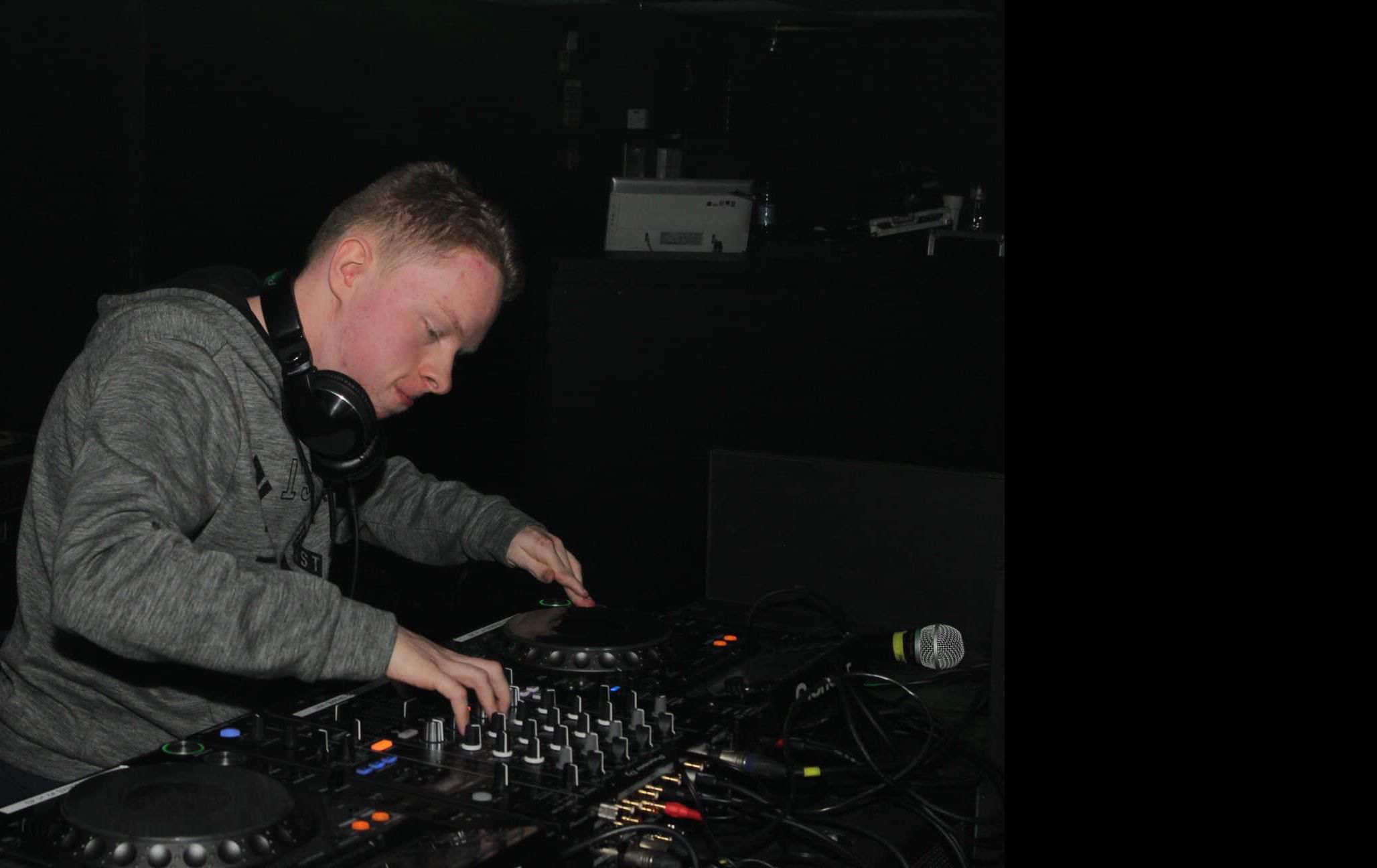
We would like to thank all those who have helped us to tell this story, including:
- Sound Lab
- Music Plus
- Jordan Carey
- Gary Murdoch
- Christine
- PJ
- Colin Hendry
- Ciaran
- Steg G
- Dimitris Skouras
- Mark McSporran
- Rebecca Vasmant
- Creative Scotland
Published October 2020

